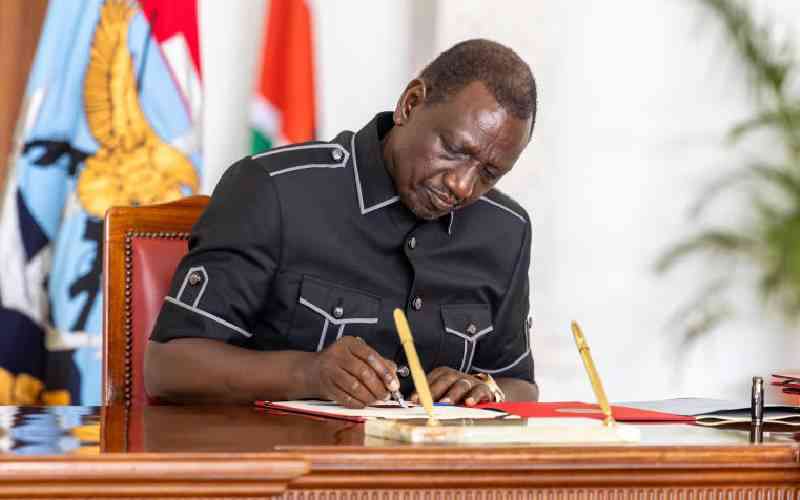×
The Standard e-Paper
Kenya’s Boldest Voice

President William Ruto on Tuesday, July 9 signed the Independent Electoral and Boundaries Commission (IEBC) Amendment Bill, 2024, into law, paving the way for a properly constituted electoral body.
This follows the retirement of former IEBC officials, including Chair Wafula Chebukati, who served for six years.







